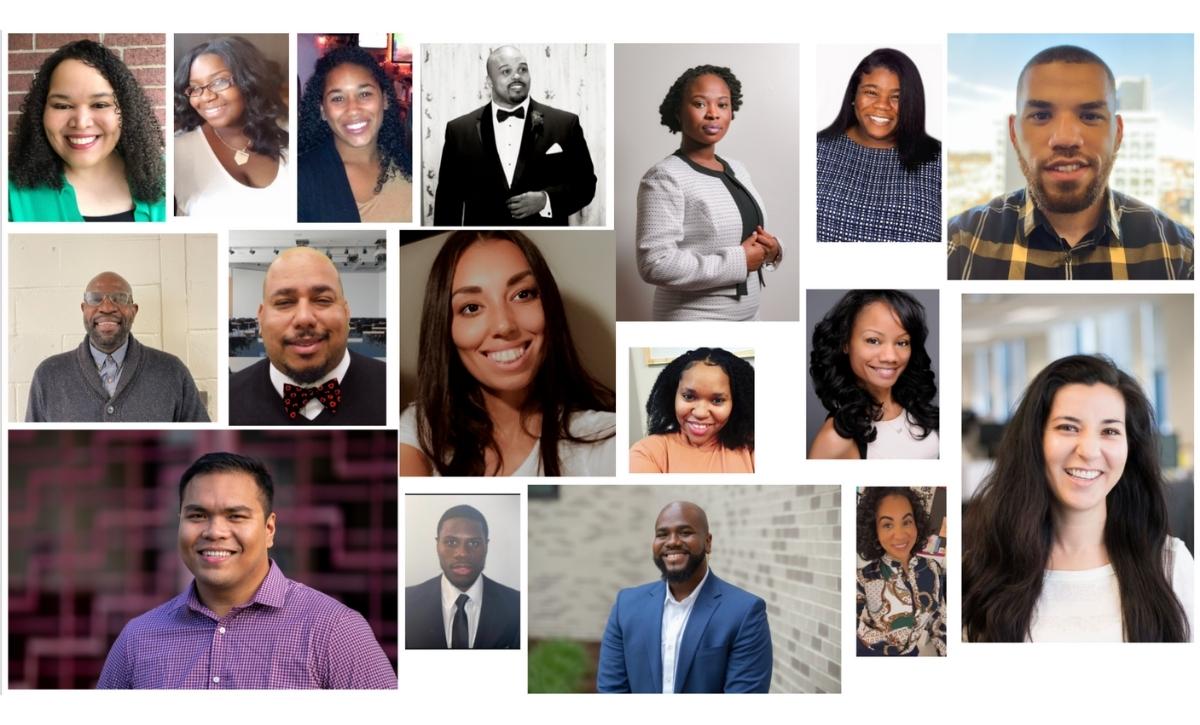To Prevent Principal Exodus, New Partnerships Offer $20K Stipends, Therapy
School leadership trainings, online communities and HBCU partnerships take root nationwide to recruit principals and prevent exodus

Get stories like this delivered straight to your inbox. Sign up for The 74 Newsletter
Free therapy and professional coaching. $20,000 stipends.
These are some of the incentives and supports aimed at preventing an exodus of principals and school administrators taking on pandemic stressors and the nation’s divisive climate.
Focused on problem solving, self-care and leadership skills, a handful of nonprofits run by experienced educators have launched support and training programs to aid principals, particularly leaders of color who are underrepresented in the field and experiencing more job-related stress than their peers.
Organizations are also recognizing a window of opportunity: recruiting and retaining principals of color to better match and support an increasingly diverse student population. Roughly 54% of U.S. public school students are Indigenous, Black, Hispanic/Latino, Asian or multiracial, while about 78% of principals are white.
“‘How could this be done differently? How can we support you?’ We’re not hearing that conversation. It is ‘yes you did this, now do this on top of what you’re doing.’ And I think that is driving a lot of people out because you don’t feel like you can be human,” said TaraShaun Cain, executive director of the Black Principals Network.
The group is one of several support networks that launched during the pandemic, as many leaders — faced with hostility from parents, death within their family, health concerns and working more hours than ever before alongside mental health challenges — have said they may leave imminently.
One new training program in Massachusetts is taking aim at the underlying cause of stress educators witness in tapped-out peers: The current role of principal has become unsustainable. And if reimagining school structures isn’t a part of training for the next generation of principals, school systems will likely continue to fail and overtax leaders.
Recognizing the emotional toll of leading schools in the current climate, the National Fellowship for Black and Latino Male Educators partnered with BetterHelp, an online mental health service platform, to provide leaders free phone, text or video counseling.
Several are extending support beyond seated principals. Recruiting the next generation of school leaders is becoming more urgent, as one New York teacher leader noticed.
“There’s a lot more hesitancy,” said Margarita Lopez, a teacher and instructional coach for other educators at Urban Assembly Maker, a career and technical school in New York City.
Lopez, who does not know anyone else currently interested in leadership, is pursuing the shift to leadership out of frustration, eager to change current systems that have left teachers unsupported, without meaningful feedback or professional development.
“I saw it as a call to action for myself…I’ve seen a lot of people that I’ve taught with leave education altogether,” Lopez said. “I’m seeing more of that, than people wanting to stay in education and become a school leader.”
To make the role more attractive, at least one program is baking in opportunities to reshape school design while bearing the cost of training to make the career accessible and enticing to a more diverse pool of applicants.
Launched by Springpoint, a nonprofit dedicated to reimagining high school, and Boston-based philanthropy The Barr Foundation, the Transformative Leaders Massachusetts program is recruiting educators to better reflect the state’s diverse student population.
For example, they may look to recruit multilingual leaders to support the state’s immigrant families, particularly from Brazil, Cape Verde the Azores and mainland Portugal. Massachusetts has the largest share of foreign-born Portuguese speakers in the country.
The tuition-free leadership program will include coaching on how to encourage staff and student identity development, competency-based learning, and managing teams — thinking through the system and volume of direct reports that principals manage daily, for example.
About 10 teachers will begin the pilot two-year development program this summer — each participant will earn $20,000 stipends on top of their existing school salaries.
“There has been an addition of work without compensation. And for us, this is really a statement of valuing their time… this should not be something that educators go into debt for. This should be something that is a pathway that feels clear and open,” said Lauren Bassi, director of leadership and school design at Springpoint and former English teacher.
Breaking down the financial barrier for leaders to enter the profession while creating support has also been a priority for the National Aspiring Principals Fellowship, child of the popular leadership training program New Leaders, Clark Atlanta University and Morehouse College.
New principal fellows can complete a certificate-only program for $10,000, or earn a Master’s simultaneously for $20,000, and receive support to apply for grant funding. Fellows can pursue licensed positions in 37 states and Washington, D.C., thanks to recent state approvals, and will ultimately join a New Leaders alumni network of over 8,000.
“When we talk about fundamentally changing what is happening in education in our country, this is what we mean: transforming the system so that every school is led by an equity-focused principal with the highest expectations for every child,” J. Fidel Turner, Dean of the Clark Atlanta School of Education, said in a press release.
New Leaders’s latest fellowship will focus on building the pipeline of principals of color to better reflect and serve student populations. Principals of color create better academic outcomes for students of color — who make up the majority of K-12 schools nationally — and are more effective than their peers at recruiting and retaining teachers of color, according to synthesis of over 200 research studies.
The next few years could present an opportunity to better diversify the field and encourage better outcomes for students of color, disproportionately impacted by pandemic learning, said New Leaders CEO Jean Desravines.
“We are not saying that we should transition out existing white principals. What we’re saying is there’s a recognition that there will be significant turnover in the field, a mass exodus because of mental health issues, because of COVID, because of the political environment,” Desravines told The 74. “It will be a missed opportunity if we are not being intentional and strategic about how we build the pipeline in a way that ensures there’s far greater representation than there’s been in the past.”
Desravines added that principals, particularly those without supportive district leadership, have been feeling “incredibly lonely.” There are about 11 and 9% of Black and Latino principals nationally, respectively. Some may be the only leader of color in their district or county — experiencing a mix of racist hostility or taking on more emotional labor to support marginalized students than their peers.
Black Principal Network’s Executive Director Cain, for instance, built her career in her hometown of Chicago alongside many Black educators and leaders. But she knows that some, in places like Madison, Wisconsin, are the only ones in their district or county fiercely advocating for the “babies that look like me.”
It’s become necessary to share strategies across state lines, so that leaders who would previously have never crossed paths, can share lessons learned like how to advance an equity initiative or deal with a combative school board.
“There’s [professional] development needed, but what I learned is there are some internal obstacles that our guys face, too,” said Keith Brooks, founder of the National Fellowship for Black and Latino Male Educators, the group offering free access to BetterHelp therapy. “Imposter syndrome — just understanding their worth or value, or internalized racism, and being able to show up as their authentic self… that was one of the biggest things that was getting in our guys’ ways.”
The Black Principal’s Network recognized a similar need near the beginning of the pandemic and widespread protests against racism and police violence. What began as a Facebook group has morphed into an online community of over 350; principals participate in self-care, sustainability, and self-discovery programming.
While the Fellowship and Network specifically advocate for principals of color, the strategies and support offer a roadmap for the broader population of leaders.
“Sometimes you feel like being vulnerable or taking time means that you are abandoning, or it is a sign of weakness…we have to change that narrative,” Cain said. “We have to create a space where our leaders can actually get refilled and be recharged beyond what we have right now.”
Get stories like these delivered straight to your inbox. Sign up for The 74 Newsletter

;)
